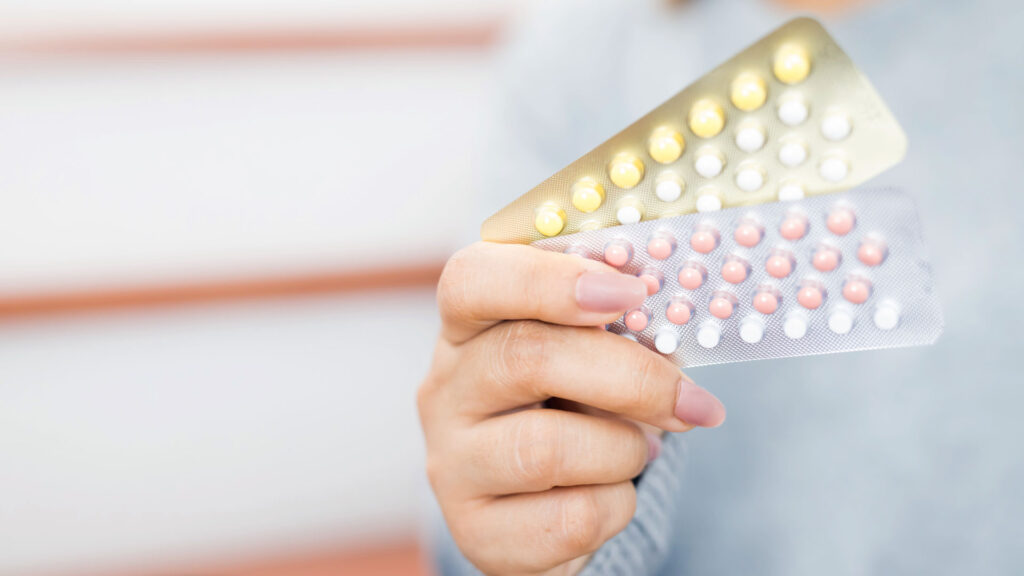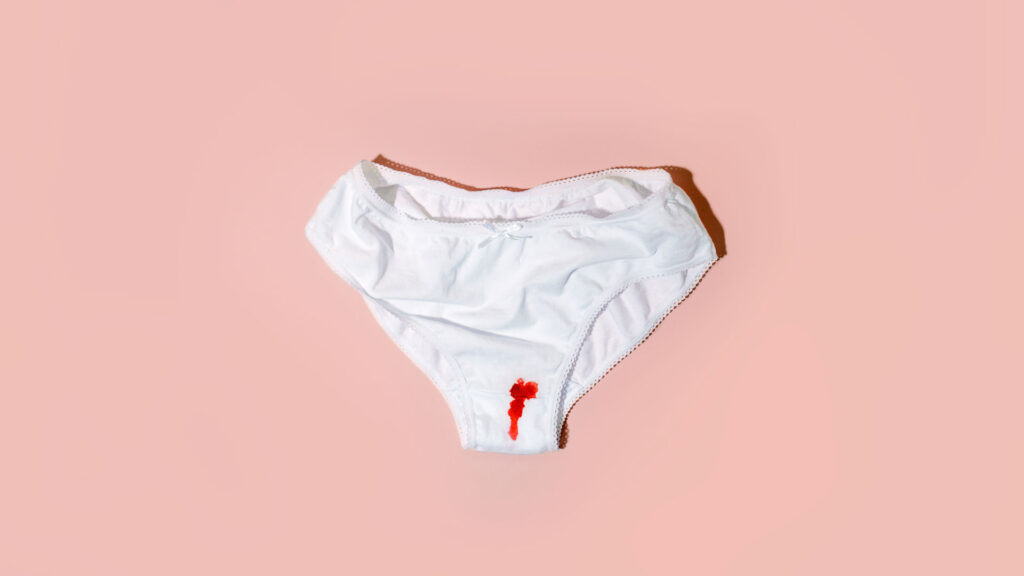Getting pregnant after quitting the pill: when does fertility return
- READING TIME 7 MIN
- PUBLISHED November 02, 2023
- AUTHOR Donna
Key takeaways
- Using birth control pills or other forms of hormonal contraceptives doesn’t affect your fertility. Ovulation is normally back within two to four weeks of quitting contraceptives.
- But that doesn’t mean that your chances of getting pregnant will be the same after you stop taking the contraceptives. It’s a simple fact that fertility naturally declines with age.
- Any issues you had before you started taking the pill will also continue to affect your fertility after you quit the contraceptives. Irregular periods, for example, will likely return.
- It’s recommended to wait at least until you get your first natural period before you start working on a baby. This way you can better predict your monthly fertility window and start taking important prenatal vitamins, such as folic acid.
Getting pregnant after quitting the pill: when does fertility return
Many people think that it takes some time for fertility to return after getting off birth control. This is considered false. 1 Ovulation is typically back within 30 days of quitting contraceptives. 2 3 This means you can, theoretically, conceive after only 14 days. It also means that if getting pregnant is not the reason for discontinuing hormonal contraceptives, it’s not a bad idea to immediately switch to another form of birth control – condoms, for example.

Differences between the hormonal contraceptives
Research shows that fertility will return similarly for most types of hormonal contraception, such as pills, contraceptive patches, intrauterine devices (IUDs) and vaginal rings. 4 It may take longer if you use Depo-Provera, a progestin-containing birth control method that’s injected every three months – your period will usually return within 6 months of the last injection. 5
There are two types of pills. One is the combined pills, which contain both estrogen and progestin hormones. The other version, also known as mini pill, is progestin-only. The combined hormone pills prevent your ovaries from releasing an egg. They also thicken your cervical mucus and thin uterine lining.
Progestin-only pills also thin your uterine lining and can sometimes halt ovulation. Progestin-only pills are very sensitive, so you’ll need to take them at the same time every day. Once you go off the pill, your cervical mucus will quickly return to normal, making it easier for sperm to reach the egg. 6

First withdrawal bleeding, then the natural period
The first “period” after stopping the (combined) pill, also known as withdrawal bleeding, is not in fact a period as it doesn’t follow ovulation. Withdrawal bleeding is usually lighter and shorter and causes fewer symptoms. It happens because the levels of hormones drop which triggers the shedding of the uterine lining. Withdrawal bleeding is temporary but if it doesn’t stop after a couple of days and you start to worry, we encourage you to talk to your gynaecologist.
The next bleeding after withdrawal bleeding is your first natural period. If you plan to work on a baby, health care professionals recommend that you first wait until after you’ve had a natural period (or a couple of them). This way you’ll be able to better predict when you ovulate and with that calculate your fertility window – more on that below. 7
Also – pregnancy planning is not a bad idea in any case. You can use this time to get in better shape, give up smoking and alcohol and start taking prenatal vitamins, primarily folic acid. The latter is important because it helps prevent certain birth defects that affect a baby’s spinal and brain development. You should start taking folic acid at least three months before conceiving for the most effective results. 8 Learn more about the vitamin in our extensive guide on folic acid.
How do I know I am ovulating now: Calculating fertility window
The fertile window typically lasts up to five days leading to ovulation and through the day of ovulation. 9 Calculating ovulation is typically straightforward. Start with calculating how many days have passed between the first day of bleeding in your last period and the first day of bleeding in the next one. Then subtract 14 days from the end of your current cycle to roughly determine the day you ovulate.
This simple method, however, only works if your menstrual cycles are regular. If they are harder to predict, it’s also more difficult to calculate the exact ovulation day. But there are other methods, which include:
- Using an ovulation test kit, used to detect luteinizing hormone (LH) surge that happens before an egg is released
- Measuring body basal temperature (BBT) – temperature of your body when it’s fully at rest. BBT slightly rises after you ovulate
- Observing changes in cervical secretions. A few days before ovulation, the vaginal mucus becomes clearer and more slippery
If you want to learn more about your fertility window, methods for predicting most fertile days and what can possibly go wrong with ovulation, jump over to this article.
Does the pill affect fertility?
It’s highly unlikely that being on hormonal contraceptives will cause fertility issues. One study found that the rate of conception among women+ who stopped using oral contraceptives is similar to the percentage of women+ who become pregnant after one year of stopping other forms of contraception including using non-hormonal birth control. According to this study, 83 percent of women+ on average will conceive in 12 months. 10
But fertility can still reduce while you’ve been on the pill – it’s just not contraceptives’ fault. Many factors affect fertility – a big one, for example, is your age. If you’ve been on the pill since you were 20 and you’re now 15 or 20 years older, your fertility will naturally decline with age. By age 40, for example, an average healthy woman has only a 5 percent chance of conceiving per cycle – compared to around 20 percent chance per cycle in a woman’s peak fertile years in their 30s. 11 Getting pregnant straight away after ditching hormonal contraceptives is therefore unlikely, but not impossible.
Moreover, any issues you had before you started taking the pill will continue to affect your fertility after you quit the contraceptives. This means that irregular periods will likely return. The same goes for other potential underlying conditions of your reproductive system, including polycystic ovary syndrome, pelvic infections, endometriosis or blocked fallopian tubes. Weight, overall health, lifestyle habits, certain medications and stress can also influence your cycle and hurt your chances of conceiving.

It can take time
In some cases, your body may need longer than usual to start producing the regular hormones for ovulation, a condition known as post-pill amenorrhea. 12 You could experience occasional periods with several skipped months in between. It can also happen to women+ who previously had a regular cycle before taking the pill. In some cases, regular cycles may not return until after a couple of months. 13
If you stopped taking hormonal contraceptives and there’s no sign of a period after some months, we encourage you to talk to your doctor. They can address any potential health issues that may be delaying or interfering with your cycle.
Return of the PMS, period cramps and other period symptoms
With the return of your period, you may again start experiencing its many “charming” symptoms, such as cramping in the abdomen, bloating, breast tenderness, mood fluctuations, headaches and other signs of premenstrual syndrome. Heavy bleeding or skin condition that the hormonal contraceptives helped to quash are also likely to come back. But it’s not all bad news – for some, going off the pill could cause the sex drive to increase to pre-pill levels. If that’s the case, it’s time to go for it!
REFERENCES
- https://pubmed.ncbi.nlm.nih.gov/30062044/
- https://www.nhs.uk/conditions/contraception/when-periods-after-stopping-pill/
- https://www.uptodate.com/contents/combined-estrogen-progestin-oral-contraceptives-patient-selection-counseling-and-use#H2706278194
- https://pubmed.ncbi.nlm.nih.gov/30062044/
- https://www.verywellfamily.com/when-will-you-get-pregnant-after-depo-provera-1959946
- https://www.mayoclinic.org/healthy-lifestyle/birth-control/in-depth/best-birth-control-pill/art-20044807
- https://www.nhs.uk/conditions/contraception/when-periods-after-stopping-pill/ https://www.nhs.uk/conditions/contraception/when-periods-after-stopping-pill/
- https://pubmed.ncbi.nlm.nih.gov/26334606/
- https://www.ncbi.nlm.nih.gov/pmc/articles/PMC27529/
- https://www.ncbi.nlm.nih.gov/pmc/articles/PMC6055351/
- https://www.createfertility.co.uk/blog/your-chances-of-getting-pregnant-at-40-with-and-without-ivf
- https://www.mayoclinic.org/healthy-lifestyle/birth-control/in-depth/birth-control-pill/art-20045136
- https://www.nhs.uk/conditions/contraception/when-periods-after-stopping-pill/
